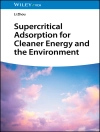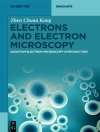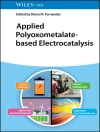Planung, Entwurf und Betrieb, Prozessanalyse, Optimierung, Steuerung , Wartung und Überwachung: Dieser Band diskutiert die Schmelzcarbonat-Brennstoffzelle gründlich aus der Sicht des Ingenieurs. Die vielfältigen Vorteile dieser Energieumwandlungs-Technologie werden einleuchtend erörtert, wobei auch neueste Forschungsergebnisse zur Sprache kommen. Ein Anhang diskutiert Benchmark-Aufgaben mit den zugehörigen Gleichungen und Parametern.
Inhoudsopgave
DESIGN AND OPERATION
Development of Hot Module-MCFC
Operational Experiences
Conceptual Design/ Reforming Concepts
MODEL-BASED PROCESS ANALYSIS
MCFC Model Family
Index Analysis of Models
Steady State Process Analysis
Analysis of Process Dynamics
Parameter Identification
OPTIMIZATION AND ADVANCED CONTROL
Control/ State Observer
Optimal Control Strategies
Optimization of Reforming Catalyst Distribution
APPENDIX: BENCHMARK PROBLEM/ EQUATIONS AND PARAMETERS
Over de auteur
Kai Sundmacher studied mechanical and chemical engineering at the Universities of Hanover, Braunschweig and Clausthal. After gaining his Ph D in 1995 and his lecturing qualification in 1998 from TU Clausthal, he was a postdoctoral researcher at the University of Newcastle-upon-Tyne, UK. In 1999 he became a full professor for Process Systems Engineering at the Otto-von-Guericke University of Magdeburg, and since 2001 he is also the Director for Process Engineering at the Max Planck Institute for Dynamics of Complex Technical Systems in Magdeburg. Professor Sundmacher’s current research interests include integrated chemical processes, dynamics of particulate processes, and dynamics of fuel cell systems.
Achim Kienle received his Ph D and his lecturing qualification from the University of Stuttgart. He heads a research group on synthesis and dynamics of chemical processes at the Max-Planck-Institute for Dynamics of Complex Technical Systems in Magdeburg since 1998. In addition, he has held the chair for Automation/Modeling at the Department of Electrical Engineering and Information Technology at the Otto-von-Guericke University of Magdeburg since 2002. Professor Kienle’s research interests include the synthesis and dynamics of integrated chemical processes, population balance modeling and dynamics of particulate processes, and dynamics and control of chemical plants.
Hans Josef Pesch studied mathematics and physics at the University of Cologne, Germany, and obtained both his Ph.D. and his lecturing qualification from Munich University of Technology in 1978 and 1986, respectively. In 1987 he became a visiting professor at the University of California in San Diego. From 1988-1989 he held a professorship for mathematics and theoretical computer science at the University of the Armed Forces in Munich. After an extraordinary professorship at Munich University of Technology, he became a full professor for numerical mathematics and scientific computing at Clausthal University of Technology in 1995. Since 1999 he is a full professor for mathematics in engineering sciences at the University of Bayreuth. Professor Pesch has spent research stays at the universities in San Diego, Stanford, Berkeley, and Blacksburg as well as at the Academy of Sciences in Moscow and Warsaw. His current research interests include numerical mathematics, optimal control, scientific computing and technomathematics.
Joachim Berndt studied mechanical engineering, materials engineering and welding technology. From 1960 on, he was an active engineer with different companies involved with process plant construction and power engineering. In 1983, he founded an engineering company for power and environmental engineering. He became speaker of the IPF Holding Company Berndt KG, Reilingen, Germany, in 1990. He works in the fields of planning, construction and contracting of combined heat and power plants (CHPs), power-heat-cold coupling plants as well as industrial and maritime fuel cell applications technologies.
The physicist Gerhard Huppmann is working since more than 30 years in the field of energy technologies with a focus on high effective renewable and secondary energy utilizing systems. Since 1989 in the field of carbonate fuel cells he created basically the design of MTU’s Carbonate Fuel Cell Hot Module. Head of the group ‘New Fuel Cell Concepts and Applications’ at MTU CFC Solutions Gmb H, a company of Tognum group. The design of the Hot Module was awarded for innovations and future applications sponsored by the German gas business sector. Member and convener of several working groups within the IEC fuel cell standardization work and convener of the working group investigating ‘Fuels for Fuel Cells’ under the IEA Implementing Agreement ‘Advanced Fuel Cells’, Annex 19. Presentations on international seminars and symposia and author of many articles concerning fuel cells and their applications.












